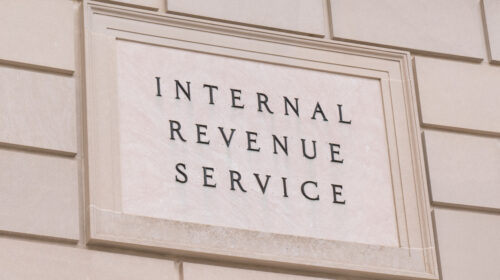IRS Offers Tax Relief to Taxpayers Affected By Crisis in Middle East

The Internal Revenue Service is offering tax relief to individuals and businesses impacted by the unfolding crisis in the Middle East that has ensnared many Americans residing in or visiting the Holy Land.
The IRS provided relief to taxpayers who, because of the critical situation, may not be able to meet a tax-filing or tax-payment obligation, or they’re unable to carry out other time-sensitive tax-related actions. They now have until Oct. 7, 2024, to file federal returns, send tax payments and do other time-sensitive tax-related actions. The IRS said it will continue to monitor events and may provide additional relief.
The notice delays different tax filing and payment deadlines that occurred or will occur during the period from Oct. 7, 2023, through Oct. 7, 2024. As a result, affected individuals and businesses will now have until Oct. 7, 2024, to file their returns and pay any taxes that were originally due during this period. That includes people who had a valid extension to file their 2022 return due to run out on Oct. 16, 2023. The IRS pointed out, though, that because tax payments related to these 2022 returns were originally due on April 18, 2023, those payments are not eligible for this relief. Thus, individuals filing on extension have more time to file, but not to pay.
It also includes calendar-year corporations whose 2022 extensions run out on Oct. 16, 2023. Like individual taxpayers, these corporations have more time to file, but not to pay.
However, for 2023 individual and business returns and payments normally due on March 15 and April 15, 2024, these individuals and businesses have both more time to file and more time to pay.
The tax relief also applies to quarterly estimated income tax payments normally due on Jan. 16, April 15, June 17 and Sept. 16, 2024, as well as quarterly payroll and excise tax returns normally due on Oct. 31, 2023, and Jan. 31, April 30 and July 31, 2024. Tax relief is also being granted to calendar-year tax-exempt organizations whose extensions run out on Nov. 15, 2023, along with retirement plan contributions and rollovers.
The penalty for failure to make payroll and excise tax deposits due on or after Oct. 7, 2023 and before Nov. 6, 2023, will also be abated as long as the deposits are made by Nov. 6, 2023.
The relief applies to any individual whose principal residence or business entity or sole proprietor whose principal place of business is in Israel, the West Bank or Gaza, as well as any individual, business or sole proprietor, or estate or trust whose books, records or tax preparer are located in the covered area. It also naturally applies to anyone killed, injured, or taken hostage. Any individual who is affiliated with a recognized government or philanthropic organization and who is assisting in the covered area, such as a relief worker, also qualified for tax relief.
The IRS said it automatically identifies taxpayers whose principal residence or principal place of business is located in the covered area based on previously filed returns and applies relief. Other eligible taxpayers can get the relief by calling the IRS disaster hotline at (866) 562-5227. International callers may reach the IRS at (267) 941-1000.
Source: AccountingToday.Com